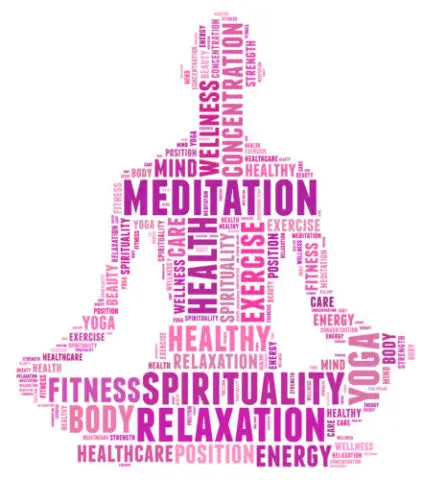Since man is a man, he has wondered about the causes of suffering and, above all, about the means to alleviate it. Sooner or later we all end up asking ourselves, why don’t I feel good? Or what can I do to stop suffering?
What is mindfulness?
Mindfulness (or Full Concentration or Full Attention) is a simple way to help alleviate that suffering. We could define it as the art of making conscious sensations of our body that normally go unnoticed by us; since despite the fact that we have this ability, we rarely use it consciously and almost never for more than a few seconds of time. Mindfulness is not something new and takes us back to the Buddhist tradition of meditation that is more than 2,500 years old.

Who can benefit from the practice of Mindfulness?
Anyone can benefit from practicing mindfulness. It is known that healthcare professionals are among those who suffer the most from the effects of continuous work stress. Social and health professionals are no exception, and due to the nature of their work they are often caught up in this type of chronic stress situation, suffering both from the effects of daily and long-term stress with all the harmful consequences on health that this entails.
Unfortunately, not all professionals have appropriate and effective stress coping strategies. Mindfulness is one of the strategies that has been shown to be most effective in alleviating and preventing the effects of ongoing stress. It is a skill that can be developed with the right training. This technique has its roots in ancient traditions, and works by eliminating the effects of stressful agents, allowing us to face them in a different way.
Here we show you its main benefits on mental and physical health:
- Mindfulness helps improve emotional intelligence
Several studies show that the practice of mindfulness, by improving self-awareness, helps improve self-knowledge. These leads us to a better recognition of emotions, both our own and those of others, which leads to better management of interpersonal relationships.
2. Mindfulness enhances creativity in people who practice it
By bringing the mind to a calm state, mindfulness helps new ideas have more space in mental activity, thus displacing negative emotions, such as worries. Being focused on the present moment makes the person feel freer and more creative.
3. The practice of mindfulness improves the ability to concentrate
One of the main benefits of mindfulness is that it encourages concentration on one thing. This ability is generalized to everything that the person can do, whether they are complicated or simple tasks. Mindfulness teaches us to keep distractions at bay by providing a higher level of concentration on what we are doing at that precise moment.
4. Mindfulness fights insomnia
As we have indicated, the continued practice of mindfulness brings the body to a state of relaxation and helps to ward off worries. This is reflected in a lower level of cortical activation that leads to a favorable state to promote sleep and improve its quality.
5. Practicing mindfulness eliminates stress and anxiety
This is perhaps the most studied effect and for which mindfulness is best known. As we already know, stress can cause hypertension, heart problems, coronary heart disease, mood disorders, anxiety, etc. Mindfulness helps combat stress and anxiety because it leads us to a state of calm, serenity and mental clarity, reducing cortisol levels (the hormone that is released in stressful situations) and helping to detect stress and anxiety responses. in its early stages.

